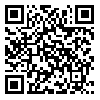BibTeX | RIS | EndNote | Medlars | ProCite | Reference Manager | RefWorks
Send citation to:
URL: http://jhsme.muq.ac.ir/article-1-53-fa.html
Background and Objectives: Metabolic control and observance of dietary therapy in adolescents with type I diabetes is weaker compared to other patients—the fact which might lead to physical, mental, and social changes in such adolescents in this period of their life. Hence, adolescences are more subject to complications of diabetes. This study, accordingly, was conducted to examine the relationship of religious orientation and physician-patient relations in prediction of treatment in adolescents with type 1 diabetes.
Methods: In a cross-sectional design, a number of 101 female and male adolescents with type 1 diabetes were selected. Data was collected via Alport Religious Orientation Questionnaire, patient-doctor relationship questionnaire (PDRQ-9) by Vanderfeltzer et al., and General Adherence Scale (GAS-5). Data analysis was performed using Pearson correlation test and Simultaneous and Stepwise Multiple Regression.
Results: Mean of participants’ age was 17.5±2.5, and adherence to treatment was 16.7±2.9. Adherence to treatment had a significant and negative correlation with external religious orientation (p=0.002, r=-0.3), while it did not have a significant correlation with internal religious orientation. Also, it had a significant positive correlation with physician-patient relation (p=0.01, r=0.24). In stepwise regression, ability of prediction of adherence to treatment by external religious orientation was 30%. Internal religious orientation and physician-patient relation had no significant share in prediction of adherence to treatment.
Conclusion: According to the results of this research, external religious orientation has the most powerful correlation with adherence to treatment so that there was a reduction in patients’ adherence to treatment as external religious orientation increased. Afterwards, physician-patient relation had a correlation with adherence to treatment so that an increase in physician-patient relation would result in an increase in adherence to treatment.
Keywords: Medication Adherence, Orientation, Physician-Patient Relations, Religious, Type 1 Diabetes Mellitus.
| بازنشر اطلاعات | |
 |
این مقاله تحت شرایط Creative Commons Attribution-NonCommercial 4.0 International License قابل بازنشر است. |




